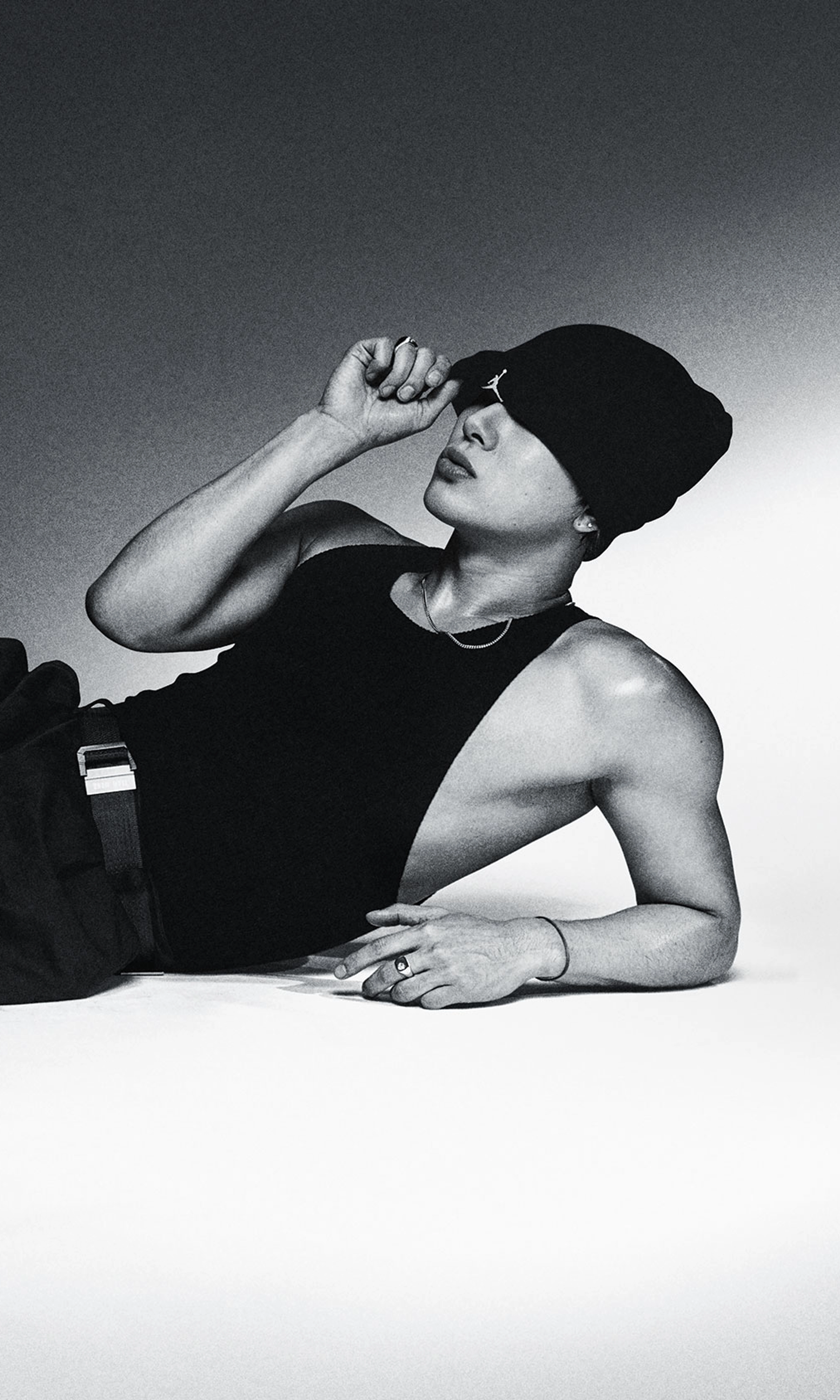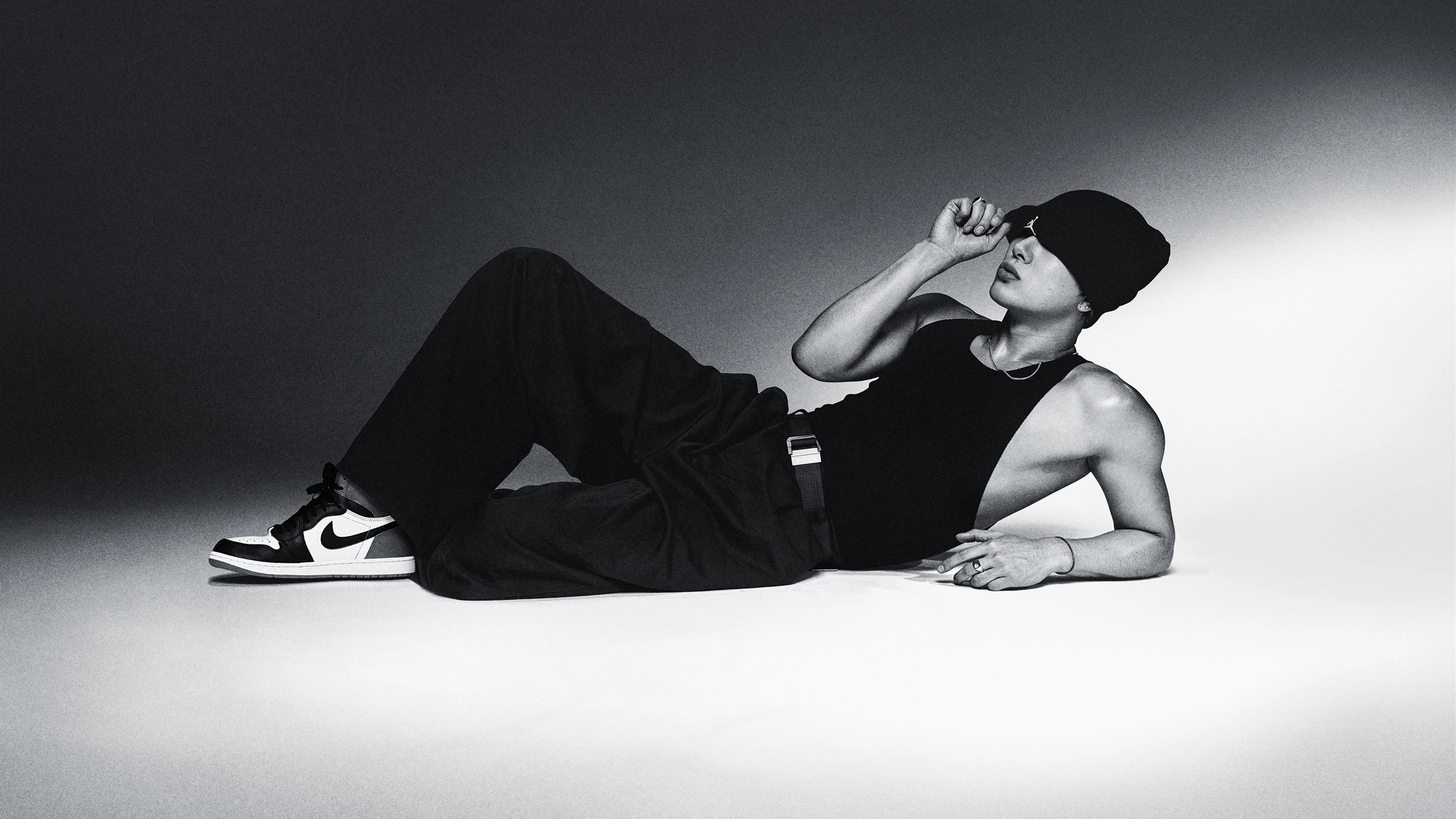5 Questions with Record-Setting Artist Jackson Wang


- December 22, 2024
A globally ranked fencer. A chart-topping performer. An accomplished designer and creative director. Jackson Wang’s career follows a broad range of personal interests and passions. But if you ask him, it's rooted in the consistent belief that all of life, including sport and art, is a performance. And performance doesn’t mean anything until you get to work, stand on the stage and prove yourself. Our thoughts exactly.
His affinities as an artist and athlete make the 30-year-old Chinese native a natural partner with the Nike & Jordan Brand family, which he officially joined this month. We talked with Jackson about the lessons he’s brought from different phases of his career, how failure feeds creativity, and what he’s most excited for in working alongside Nike & Jordan Brand.
What’s your defining Nike & Jordan Brand memory?
When I was growing up, it was less of a memory and more of an attitude. There was no nonsense to it: Stop talking and Just Do It. It was very straightforward, but at the same time, it felt right and it made sense to me. The reality is, as an athlete and an artist, people evaluate you based on what you create. You can have all of these ideas going around in your head, but ultimately, you need to take action. You need to just do it — perform, play, create.
What are the essential qualities you had as an athlete?
I grew up in a family full of athletes. My mom was a national team gymnast, my dad was a national team fencer and my brother plays rugby in Australia, so I was surrounded by sport at a young age. Interestingly, when I was competing as a young fencer, I felt like I was on a stage performing. It made my transition to becoming an artist very natural. I’ve always been motivated by making a statement in a performative sense. Of course, I’ve always been a competitive person, too. I’m always looking to improve.
Growing up surrounded by athletes, I was taught that embracing failure is a normal part of the athlete mindset; success is a bonus. You’re bound to fail, but the more you bounce back and learn from your mistakes, the more you grow. There’s a Cantonese phrase that says, essentially, that nothing is more normal than failure. What’s important is how you respond to failure.

In his fencing career, Jackson Wang has collected three national championships. In 2012, he represented Hong Kong China after qualifying for London.
What are the commonalities you see in your backgrounds as an athlete and an entertainer?
I see a lot of similarities between the two. Having an athletic mindset in the realm of entertainment and creativity means just keeping at it. Like I said, failure is okay. It should be an everyday occurrence. What I can’t tolerate in my craft isn’t failure. It’s being stagnant, being ordinary, being boring. In my opinion, that doesn’t get you anywhere, not in art, and not in athletics.
But you have to stay open to growth while also remaining true to who you are. That’s partly why Jordan Brand means so much to me personally. The brand represents more of a spirit to me: It’s about knowing yourself, always remaining true to it. Whether you fail or whether you succeed, are you strong enough to hold onto your core values when your environment changes? Jordan Brand stands for staying true to your identity as an athlete, an artist and a person.
What’s your most memorable Nike / Jordan shoe or piece of apparel?
I forgot how old I was, but a friend on my fencing team bought me my first pair of all-white Air Force 1 shoes for my birthday. It was the first birthday gift I received that made me cry. I had dreamed of those shoes for a long time. Everyone was wearing it. The shoe looked good with everything. But I didn’t have the money to buy it, and it was too much to ask my parents to get it for me. One of the seniors on the fencing team knew that I wanted the shoe so badly, he surprised me with it.
What are you most looking forward to in partnering alongside Nike & Jordan?
I’m so grateful that I get to join the Nike & Jordan family as an partner. I started off as an athlete, then became a member of a K-Pop band, had a solo career, and then began exploring other creative projects. With each of these phases, for better or worse, people attach a certain label on you. You’re only an athlete, or you’re only an artist. That’s precisely why I love Nike & Jordan Brand giving me this opportunity. It’s like they’re saying to me, “Here’s a playground. Go and play. Spread your wings and be free creatively.” They’re embracing me as both a partner and an athlete. It goes back to the identity thing. Nike & Jordan let me be true to who I am.